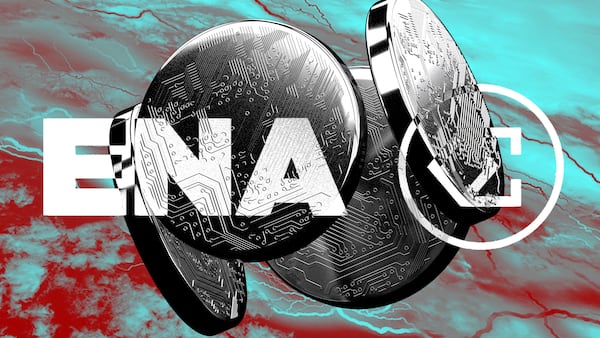- A new bipartisan stablecoin bill from the Senate Banking Committee has reignited hope for a bill to pass in May.
- That's not likely to happen.
- But the industry won't have to wait long — 2025 is looking good for stablecoin laws.
A version of this story appeared in our The Guidance newsletter on April 22. Sign up here.
US lawmakers are hoping to get stablecoin legislation over the line this summer.
That’s unlikely. But the industry won’t have to wait too long.
2025 will be the year the US gets a stablecoin law, Jonathan Padilla told me.
Padilla worked on PayPal’s stablecoin as its head of blockchain strategy till June 2021. He is the founder of web3 company Snickerdoodle Labs.
Given former President Donald Trump’s lead in the polls, Padilla said there will likely be a Republican government in 2025, and Republicans “have a natural advantage” in the Senate.
There’s political will among Republicans — the main recipients of crypto industry donations — to get stablecoin rules done, Padilla said.
And Democrats are also doing their part to hammer out bills.
One bipartisan bill passed out of the House Financial Services Committee in July, and two Senators in the Banking Committee have just published a brand new one.
“The bills are ready, the arguments are stacked. If the Republicans take back the Senate, and they hold the House, this is an issue that can be solved in the first half of the year,” Padilla said.
The need for guardrails is more urgent than ever as the $159 billion stablecoin market is growing fast.
Aleks Gilbert reported on Ripple’s planned launch of a new coin, Ethena Labs’ capital raise funding a dollar-pegged stablecoin, and announcements from DeFi stalwarts Liquity and Reflexer about new iterations of stablecoins.
Last year, DeFi giants Aave and Curve launched their own stablecoins, as did payments giant PayPal.
US lagging
Regulators worldwide are getting their heads around the stablecoin industry.
The European Union’s Markets in Crypto-Assets regulation goes live in 2024, with stablecoin rules phased in first.
And the UK government has pledged its own stablecoin rules by midyear.
In the US, there’s broad bipartisan agreement that laws are necessary for a growing industry and to combat dollar dominance threats posed by foreign central bank digital currencies, primarily Beijing.
Yet the US still doesn’t have any laws on the books.
A small chance
Democrats and Republicans have been split on basic issues, such as whether state or federal government should be the primary regulators of stablecoin issuers.
Still, there’s a small chance that the crypto industry gets the clarity it clamours for.
The House bill’s sponsors are reportedly negotiating to bundle up their bill into a piece of legislation that reauthorises aviation spending and must pass into law in May.
Similarly, Senate Banking head Sherrod Brown, a Democrat from Ohio, has said he’s open to doing the same thing with a Senate stablecoin bill.
But it’s unlikely these bills will pass in this Congress, especially in the bustle of an election year.
While Brown is sounding a positive note on stablecoin rules, they will still have to meet his standards. He’s a crypto sceptic who will push back on anything he sees as too lenient.
That leaves the industry looking to next year.
Email me joanna@dlnews.com, or Telegram @joannallama.







